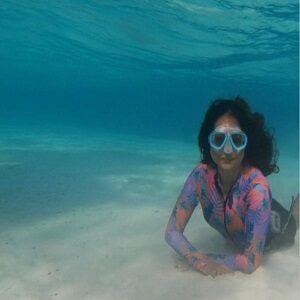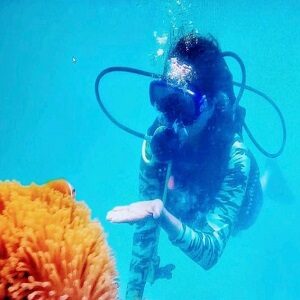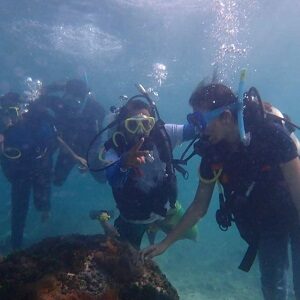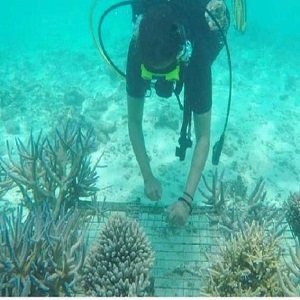Our Projects
Association of Professional Social Workers and Development Practitioners (APSWDP) initiated field, capacity building & training projects in partnership with various national level organizations, CSR and government agencies since formal launch of the association in 2015. Few projects were started with voluntary and philanthropy support from our members and mobilized resources from various organizations in initial days of evolution. Gradually, APSWDP has been supported by financial institutions, CSR companies and government.
Climate Change Education and Educating Youth & Educator
APSWDP under the aegis of The Climate Reality Project-India initiated a project titled ‘Climate Change Education and Educating Youth & Educator’ on creating awareness on Climate Change Adaptation through a fleet of nine trained climate leaders from Honorable Al Gore Noble Laureate and Former Vice-President USA. The objective of this on-going project is to train school teachers, college educators and university academicians under Teachers Training Programme and working with educational institutions for developing green campus under Green Campus Programme (GCP) since 2015. The project has trained more than 350 teachers and prospective teachers in addition to more than 3000 youth from school, colleges and universities in the Chandigarh region and is ongoing. In addition, APSWDP also do advocacy, lobbying with corporate companies, educational institutions, government agencies to organize dialogue, seminars, conferences, panel discussions and symposiums to start and lead a conversation on Life Style and Behaviour Modification.
Economic Empowerment of Marginalized Women
APSWDP under the aegis of USHA Social Affairs Division, USHA International under CSR support completed a one year duration project in 2015-16 at fifteen locations in Chandigarh U.T. The project was aimed at economic empowerment of women by opening fifteen ‘USHA Silai Schools’ and extending training & sewing machines at various locations including villages and rehabilitation colonies in the city under supervision of Dr. Monica Singh, President. The project further trained more than 500 community women through USHA Silai Schools established by the association and made women self-reliant on their economic front. The project has made fifteen (15) community women self reliant and community entrepreneurs by opening Silai Schools (Stitching Learning Centre) and they started contributing in their family income there by transforming family lives by extending education to their girl child, healthy nutrition in the family and increased their spending power.
COVID-19 Social Solidarity Response Relief Campaign- 2020
In Chandigarh Union Territory, the Association of Professional Social Workers and Development Practitioners (APSWDP) came forward in conceiving an initiative – “COVID-19 – Solidarity Response Relief Campaign” during COVID-19 Pandemic and the lockdown in Chandigarh tri-city region.
The APSWDP had planned and executed a 65 + days of sustainable campaign including awareness generation and sensitization of communities and volunteers on COVID-19 guidelines, identifying and engaging volunteers and relief distribution in addition to mobilization of resources from philanthropists, civil society, religious & youth organizations and corporates under Corporate Social Responsibility (CSR) for extending support to worst hit communities with essential commodities for living including food, hygiene related kits among migrants, economic weaker and marginalized communities including women, children, Persons with Disabilities, Trans-genders, old aged etc. The APSWDP Chandigarh has been entrusted by local government under patronage of Mayor and Municipal Commissioner Chandigarh to extend support and assistance to the urban poor including urban homeless living in slums, rehabilitation colonies and shelters in the city. Since the day one of the lockdown, the association with limited volunteers extended full support in the awareness generation, distribution of day-to-day cooked meal and other commodities including personal hygiene kit.
Recent Report: COVID-19 – Social Solidarity Response Relief Campaign
Targeted Intervention (TI) Composite for High Risk Groups (MSMs, FSWs and TGs) Project
Association of Professional Social Workers and Development Practitioners (APSWDP) under the aegis of Chandigarh State AIDS Control Society (CSACS) with the grant support from National AIDS Control Organization (NACO), Ministry of Health and Family Welfare (MoHFW) has been empanelled and started the Targeted Intervention Composite Project in Chandigarh for creating awareness, testing, diagnosis, behavior change and treatment of High Risk Communities (TGs, MSMs and FSWs) since 1st April, 2021.
APSWDP Targeted Intervention (TI) Composite Projects MAP under CSACS.
Link Worker Scheme (LWS) Project
Association of Professional Social Workers and Development Practitioners (APSWDP) under the aegis of Punjab State AIDS Control Society (PSACS) with grant support from the National AIDS Control Organization (NACO), Ministry of Health and Family Welfare (MoHFW) has been empanelled and started the Link Worker Scheme (LWS) Project at Ludhiana in Punjab for creating awareness, testing, diagnosis, behavior change and treatment of High-Risk Communities (TGs, Migrants, MSMs, IVDUs, and FSWs) since 1st June 2023.
Ocean Literacy Program
Association of Professional Social Workers and Development Practitioners (APSWDP) offers Ocean Literacy Projects in association with the Young Environmentalists Programme to the student community in the context of climate change and sustainability.
Our lead Director Elsie Gabriel heads the Ocean Literacy Programs. The project activities are directed to students and involved supervising teachers, in-service teachers and young student researchers, in formal and non-formal contexts. The students participate in interdisciplinary marine ecosystems activities, focusing on the cause and effect of climate change and environmental pollution in the ocean. They learn to identify shore marine areas as well as drainage systems, streams and lakes and rivers leading up to the oceans encompassing the entire Marine Ecosystem.
The methodology used are observations, documentation and analysis as well as photography in the biodiversity areas and adjacent ocean areas as mapping platforms.
Finally, students work collaboratively to communicate to the community what they have learned through an exhibition at their college campus or any venue provided by their organization. To assess the impact of the activities on acquisition of ocean education, scientific knowledge and skills by the students, a mixed methodology is applied using pre and post-webinar lessons, analysis of the data collected and inserted by students in the project group and content analysis of the students’ work for their project book and exhibition.
The results reveal a significant and relevant increase in knowledge of the effects of climate change and pollution on the marine ecosystem as well as of the importance of monitoring these areas which are fed by local drainage systems and streams. The data and the ability of the students to communicate their learning to the wider community as citizen scientists are evaluated by the content, structure, presentation and creativity and of posters, models, videos and project book produced.
This study reinforces the importance of addressing Ocean Literacy and climate change issues as well as addressing ocean pollution through formal and non-formal educational activities with an investigative nature. The projects aim to create awareness among other stakeholders and students as well as make it part of their nature club and curriculum so that it is highly replaceable and accessible thus providing immense measurable impact.
Our research and outreach programs offer opportunities for advancements in knowledge, careers, and attitudes. These ocean literacy programs provide the experiential learning that has the potential to increase student engagement and understanding of climate change and ocean literacy communication as well as a sense of belonging in science-oriented fields which further propel them to take on careers in marine biology and oceanography as well as educate the local communities as citizen scientists.





